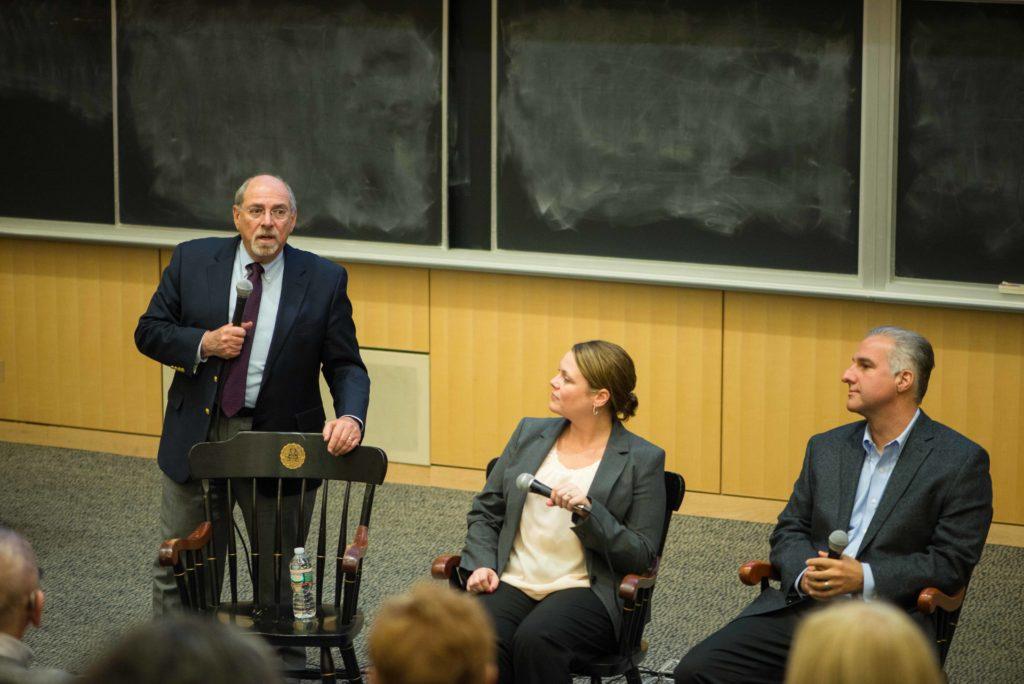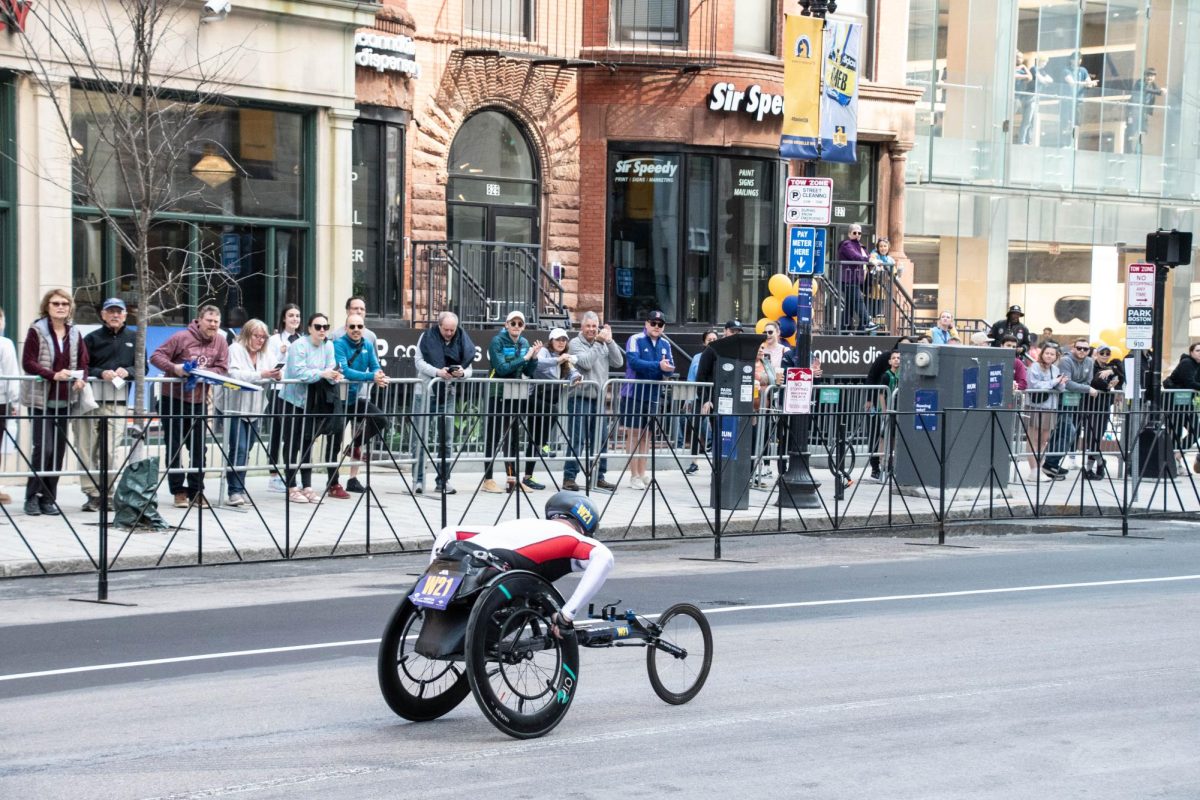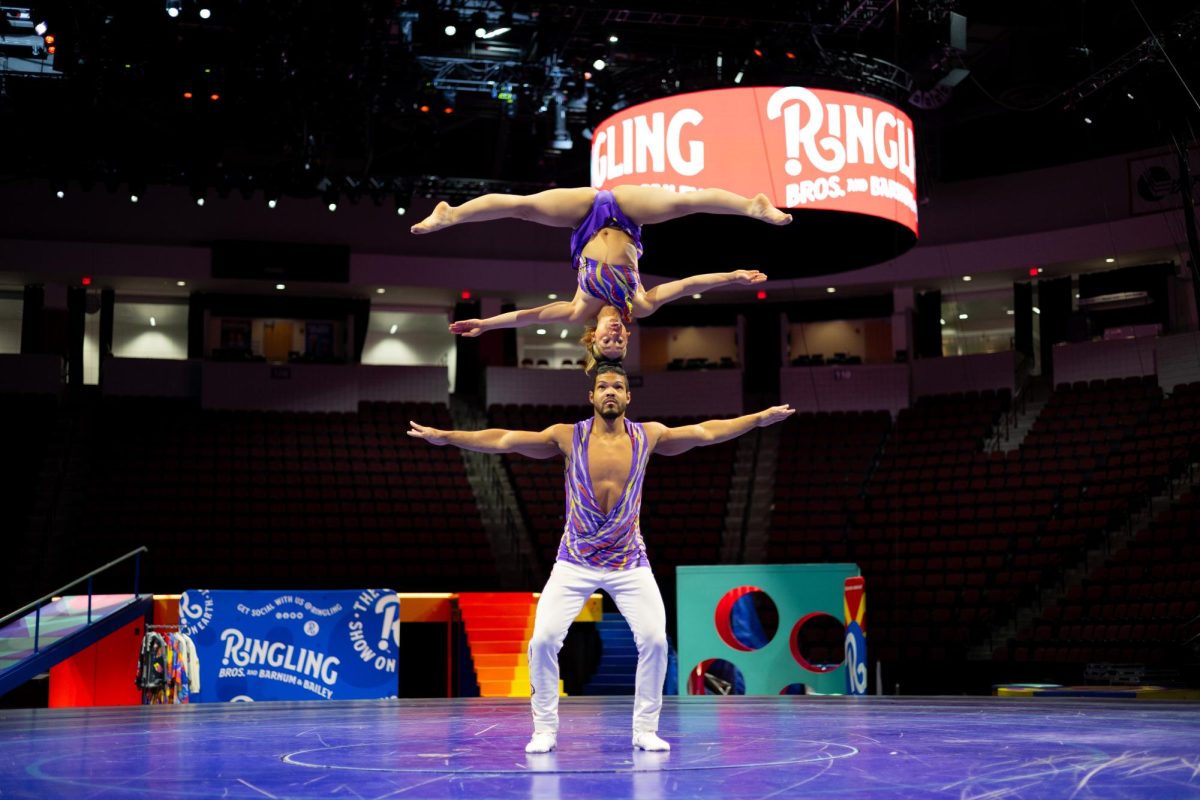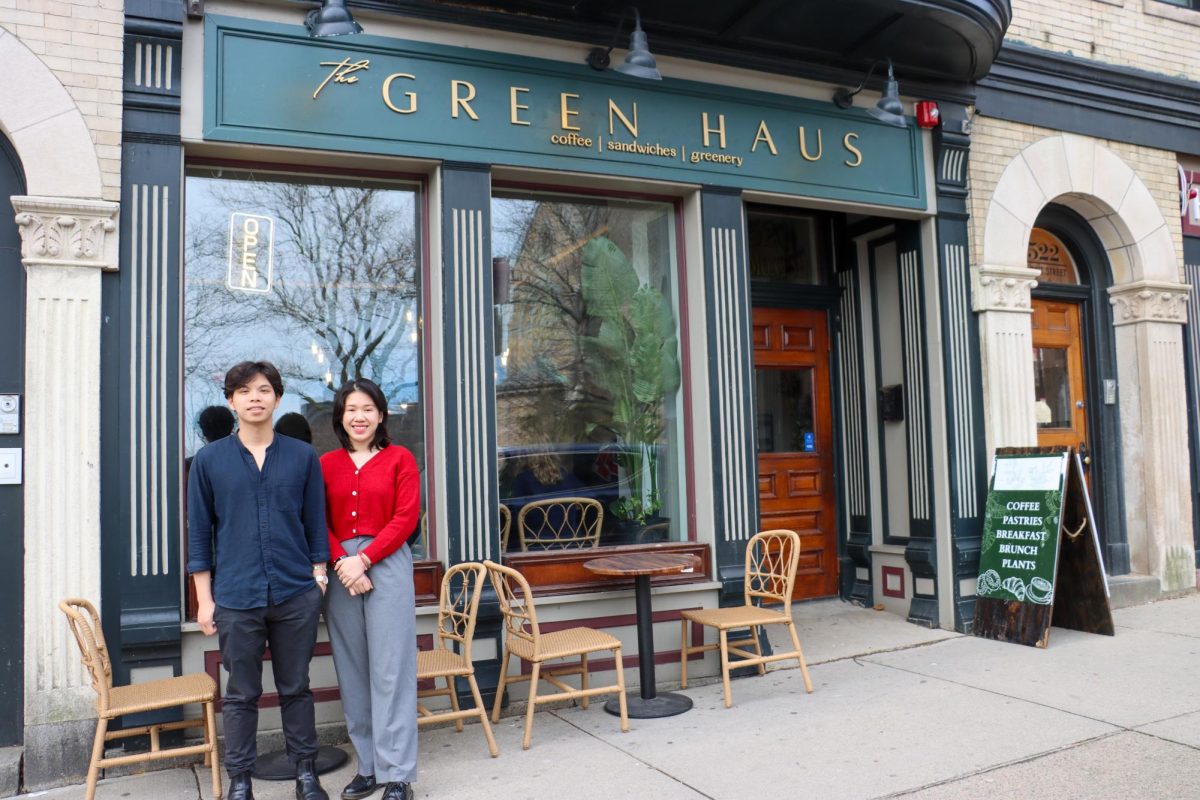By Scotty Schenck, photo editor
A classroom in the basement of West Village F was filled with around 100 people for this week’s Myra Craft Open Classroom lecture. A majority were not students but community members, listening to Boston 2024 or hoping to ask questions regarding Boston’s bid for the 2024 Summer Olympic Games.
Stearns Trustee Professor of Political Economy Barry Bluestone started the night by speaking about the bid in part of a series called “Urban Sports and the Boston Olympic Bid.” He said he was initially a skeptic but believes the bid can help the city if used correctly to address community problems.
“I think this poses a mammoth challenge, and it poses a mammoth opportunity,” Bluestone said.
He then welcomed Executive Vice President of Boston 2024 Erin Murphy. Murphy started by talking about her childhood – her fourth-grade book report was on gold-medal-winning Olympic gymnast Mary Lou Retton in the 1984 Los Angeles Olympics.
“When I was presented with the opportunity to get involved with the bid, I, frankly, similar to Barry, was a little bit skeptical,” Murphy said. “Generally, the impression is that those who get to go to the Olympics or participate in the Olympics Games are generally wealthy people of privilege.”
Murphy played a video about the Boston 2024 bid, showing athletics as a catalyst for education and economic prosperity. Murphy also read 10 commitments to the City of Boston, including that Boston 2024 would work to create thousands of jobs and housing units as well as improvements in transportation and infrastructure and opportunities for the city’s youth.
The project, Murphy said, would cost $9.1 billion. The federal government is expected to pay for the security costs, estimated to be $1 billion.
Murphy also said the bid would put transportation plans on a deadline, accelerating upgrades for the MBTA, which caused frustration this winter when it shut down multiple times due to inclement weather.
Boston 2024 has purchased insurance to mitigate any penalties from withdrawing from the bid after it is received. In addition, Boston 2024 wants the Games to be an event open to public schoolchildren, according to Murphy.
“[In the 2002 Winter Olympics in] Salt Lake City… 138,000 school children attended the Games for free, and that is something Boston 2024 is committed to doing,” Murphy said.
After Murphy’s presentation and a short break, the floor was opened to questions from the audience. They dealt with transparency, the use of public funds, transportation system upgrades and cost overruns. Many were similar to questions asked at other public Boston 2024 meetings.
Kathy Jacobs, a transportation planner in the audience, asked how long Boston 2024 had “been working under the covers.”
Doug Rubin, Public Relations and Marketing Committee Co-Chair of Boston 2024, expressed the organization’s desire for the bid to be backed by the city’s residents.
“If we cannot convince the community, we will take the venue and move it,” Rubin said during the question-and-answer session.
The Boston 2024 members also sustained insults from the crowd, “disingenuous” and “throwing parties for the elite” among them. Murphy and Rubin respectfully asked that people not throw invectives when addressing them.
One man from Greece shared his experience from the 2004 Athens Summer Olympics, which he described as “magic.” He also said that public transportation in the city only came about when the upcoming Olympic Games pushed the city to create it.
The Games may seem far in the future, but Rubin said that schools will have a chance to participate in them.
“I think there is outreach to all the schools in the area. With countries coming in early and training early, they’ll be looking to Northeastern and other local colleges and universities to house their athletes,” Rubin said in an interview during the event’s break. “Obviously, the cultural Olympiad will have plenty of opportunities to involve schools.”
A Northeastern graduate student studying law and public policy, Marie-Francis Ravera, who takes Bluestone’s course, said she came in with little opinion on the matters.
“I was pretty neutral about it beforehand but had a lot of the positive aspects of it, and [it] seems far enough away,” Ravera said. “I think nine years is enough to make the necessary changes.”
After hearing criticisms from the crowd, Ravera said she remained unsure.
No Boston 2024 volunteer Jonathan Cohn of East Fenway said he lived close by and was interested in the questions that would be raised. Multiple factors played into Boston 2024 losing public support, he said, including the winter-troubled MBTA.
“When you’re seeing how much money is behind this effort, including the salaries… it inspires you to ask, ‘Where’s this money coming from?’” Cohn said. “There’s a lot to inspire deep, deep skepticism.”
Photo by Scotty Schenck














